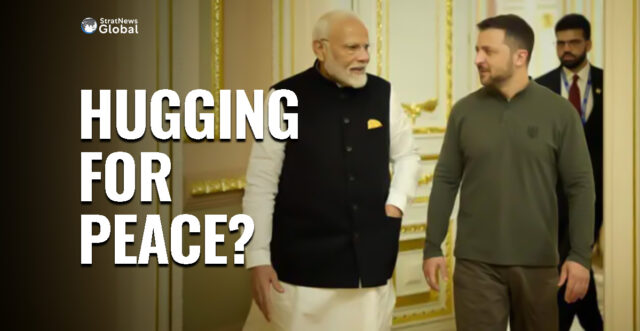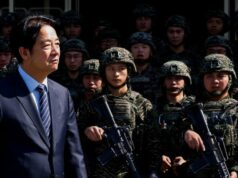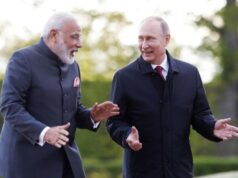“In our part of the world when people meet, they embrace. It may not be a part of your culture but it is a part of ours.”
That set the tone for External Affairs Minister S Jaishankar’s briefing on Prime Minister Modi’s visit to Ukraine, the first ever by any Indian head of government.
A joint statement was issued at the end of it with both sides agreeing to elevate the relationship from a comprehensive to a strategic partnership “in the future.”
Prime Minister Modi has invited President Zelenskyy to visit India “at a mutually convenient opportunity.”
Much of their discussions centered on the war.
“These discussions were long and detailed,” Jaishankar said, “and revolved around the military situation, medium term concerns and most of all pathways to peace and conflict resolution.”
The prime minister reiterated the need for sincere and practical engagement, urging “innovative solutions that will have broad acceptability and contribute to early restoration of peace.”
Modi said that India is willing to contribute in all possible ways.
The Ukrainians wanted India’s continued involvement with the global peace summit, also discussions on effective ways to take discussions forward not necessarily in the format of a summit but looking at multiple other possibilities.
India’s purchases of large quantities of Russian oil came up during the discussions and Jaishankar explained giving context.
“We explained to Ukraine that India is a big consumer of oil and it’s not that there is a political strategy to oil, it’s a market strategy and oil going up and down depends on the market. Today big suppliers like Iran and Venezuela are constrained from participating in the market and this needs to be taken into account.”
Jaishankar described it as a “landmark visit”, recalling that Modi and President Zelenskyy have met four times beginning in Glasgow in 2021, followed by Hiroshima in 2023 and then in June 2024 in Italy.
They have also had seven conversations over the phone, he noted, indicating that know and understand each other’s views.
“In the past,” Jaishankar noted, “India has been associated with various efforts led by various countries. We backed Turkish efforts in 2022 to open up the Black Sea Grain Corridor, in Sept 2022 we took up concerns regarding the Zaporizhzhia nuclear power plant and we were in touch with the Russians and the IAEA. At other points we have taken up a public position against escalation (of the war).”
The two sides have agreed to take their cooperation forward in a number of areas including agriculture, science and technology, defence and trade. The next session of the Intergovernmental Commission is expected to take place later this year in India.
Also, the second meeting of the India-Ukrainian Joint Working Group on Military Technical Cooperation will be held in India.
Thirty eight years in journalism, widely travelled, history buff with a preference for Old Monk Rum. Current interest/focus spans China, Technology and Trade. Recent reads: Steven Colls Directorate S and Alexander Frater's Chasing the Monsoon. Netflix/Prime video junkie. Loves animal videos on Facebook. Reluctant tweeter.





